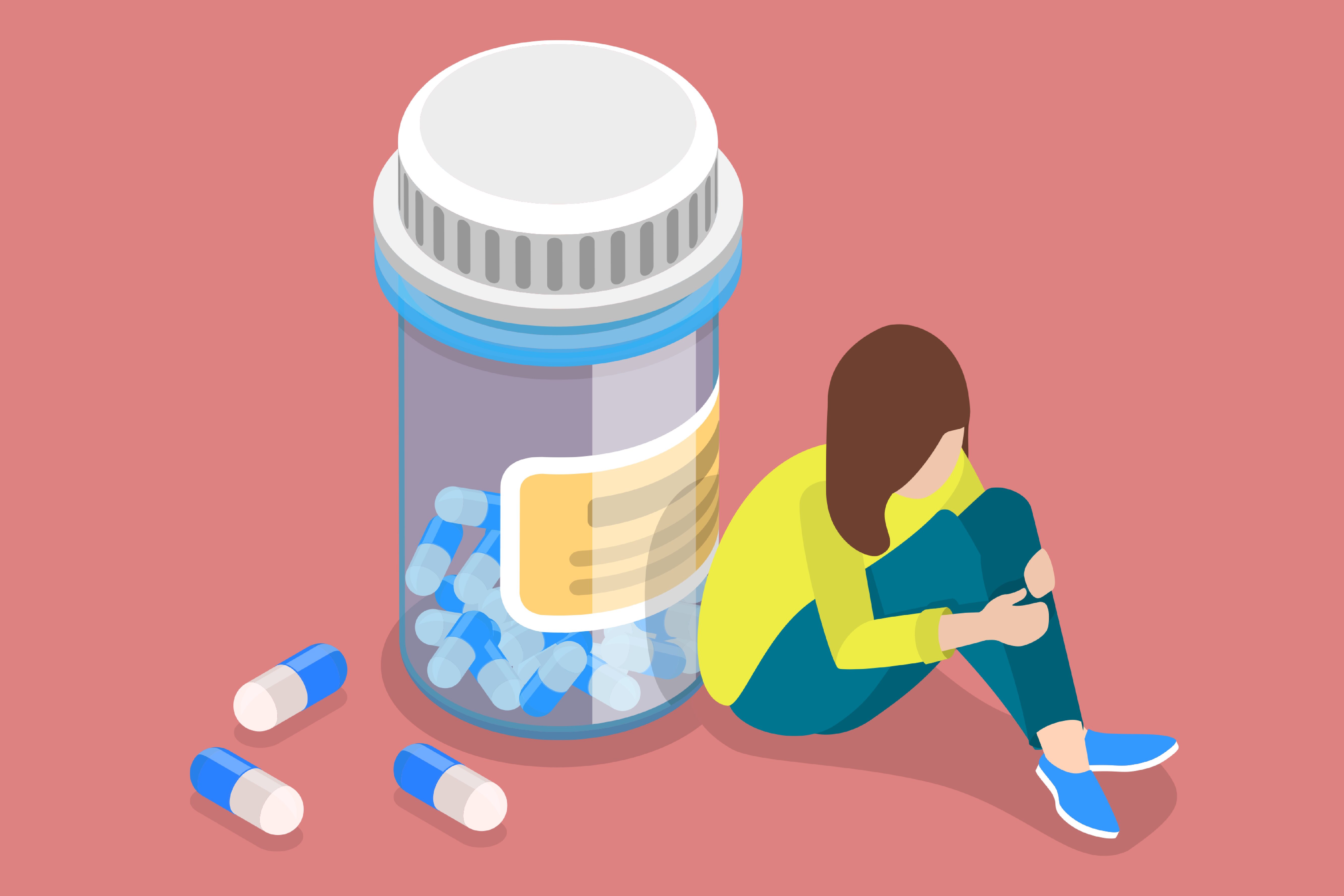
Most of Our Psychiatrists and Therapists Are Now In-Network with: Cigna/Evenorth, Aetna/Meritain, Humana-Commercial and Tricare Plans
Our Psychiatrist and Psychotherapists accept (are “in-network”) with most Cigna/Evernorth, Aetna/Meritain, Humana (Commercial Plans) and Tricare plans.
 Ever Wonder Why It’s So Hard to Find a Psychiatrist on Your Health Insurance Plan?
Ever Wonder Why It’s So Hard to Find a Psychiatrist on Your Health Insurance Plan?
Struggling to locate a psychiatrist who accepts your insurance plan can be quite perplexing. Mental health care is vital, but the process of accessing it can often feel like an uphill battle, especially when you’re seeking a psychiatrist in-network with Cigna/Evernorth, Aetna/Meritain, or Tricare in the State of Florida. In this article, we’ll delve into the reasons behind the challenges of finding such a specialist and offer guidance on how to navigate these complexities while seeking psychiatry services throughout Florida.
Why is it so hard to find a Psychiatrist Near Me who Accepts Health Insurance?
- Limited Network Options: The primary obstacle in finding a psychiatrist who accepts your insurance plan, whether it’s Cigna/Evernorth, Aetna/Meritain, or Tricare, is the limited provider networks these insurance companies maintain. They establish narrow networks to control costs, which means they contract with a limited number of healthcare providers, including psychiatrists. Consequently, locating an in-network psychiatrist within the State of Florida can be a considerable challenge.
- High Demand, Low Supply: The demand for mental health services has been steadily increasing, driven by factors such as the COVID-19 pandemic. However, the supply of psychiatrists has not kept pace with this growing demand. This shortage of mental health professionals compounds the difficulty of finding a psychiatrist who is accepting new patients, particularly within your insurance network.
- Reimbursement Rate Dynamics: Insurance providers negotiate reimbursement rates with healthcare practitioners. In many cases, these rates for mental health services are lower than those for physical health services. This financial factor can dissuade psychiatrists from participating in insurance networks or limit the number of patients they accept through insurance. As a result, you may find it easier to locate a psychiatrist who accepts cash payments but is not in-network with your insurance provider.
- Administrative Burdens: Psychiatrists who accept insurance often face substantial administrative burdens. The paperwork and requirements for insurance billing can be time-consuming and frustrating. Consequently, some psychiatrists may choose to avoid these hassles altogether by not participating in insurance networks, further restricting your options for in-network care.
- Stigma and Discrimination: Mental health stigma still exists in our society, and this can extend to the healthcare system. Some psychiatrists may be reluctant to join insurance networks due to concerns about stigma or discrimination within the insurance industry. This reluctance to participate in networks contributes to the shortage of accessible mental health providers.
- Geographical Disparities: The availability of mental health services, including psychiatrists, can vary significantly depending on your location within the State of Florida. Urban areas typically have more mental health providers, whereas rural areas often face severe shortages. If you reside in an underserved area, it can be even more challenging to find a psychiatrist who accepts your insurance.
- Complex Insurance Plans: Understanding the intricacies of your health insurance plan can be daunting. Different plans come with varying rules, copayments, deductibles, and authorization requirements for mental health services. Navigating these complexities can deter individuals from seeking care and lead to frustration when trying to find an in-network psychiatrist.
How Can I Find a Psychiatrist on My Health Insurance?
So, what can you do if you’re struggling to find a psychiatrist in-network with Cigna/Evernorth, Aetna/Meritain, or Tricare in the State of Florida? Here are some tips to help you navigate this challenging process:
- Review Your Insurance Directory: Begin by checking your insurance company’s online directory of in-network providers. Be aware that these directories may not always be up-to-date, so it’s wise to verify a provider’s participation directly with the psychiatrist’s office.
- Seek Referrals: Consult your primary care physician or trusted friends and family for recommendations. They might refer you to a psychiatrist who accepts your insurance or provide guidance on navigating the mental healthcare system.
- Contact Your Insurance Provider: If you’re facing difficulties in locating a psychiatrist, reach out to your insurance company’s customer service. They can assist you in identifying available providers, clarifying your coverage, and helping with any authorization requirements.
- Consider Telehealth: Telehealth has gained popularity for mental health services, and some psychiatrists may offer virtual appointments, broadening your options beyond your local area.
- Explore Out-of-Network Options: While out-of-network care may be more expensive, it remains an option if you cannot find an in-network psychiatrist. You can inquire about reimbursement or submit claims to your insurance company for partial coverage.
- Advocate for Change: Advocate for improved mental health coverage within your insurance plan. Write to your insurer, engage in patient advocacy groups, and support policies that expand access to mental healthcare.
In conclusion, the challenge of locating a psychiatrist in-network with Cigna/Evernorth, Aetna/Meritain, or Tricare in the State of Florida stems from limited networks, provider shortages, reimbursement rate dynamics, administrative burdens, stigma, geographical disparities, and complex insurance plans. While these obstacles may be frustrating, persistence in seeking the mental healthcare you need is essential. Don’t hesitate to contact your insurance company and explore all available resources to find the right psychiatrist for you. Additionally, advocating for improved mental health coverage can help address these systemic issues and make mental healthcare more accessible throughout Florida, including for Tricare beneficiaries.
Contact us to find out if we are participating in-network with your mental health insurance plan!
Learn More
Depression Medication: Should You Take Medication for Depression?
Antidepressant medication, or medication to treat depression, can be prescribed by psychiatrists and other physicians to help reduce the symptoms of depression? But is medication a cure for depression, and is depression medication the right choice for you?
Treatment for Depression & Depression Medication: Plantation, Florida via Tele-Health in the Entire State of Florida

Psychotherapist in Plantation Florida
I’m Dr. Chantal, the founder of Plantation Counseling and Wellness is Broward County, FL, When I decided to add psychiatry and medication management to our psychotherapy and wellness practice, it was really important to me to only work with physicians who are thoughtful in the way they prescribe anti depressants. Too often, doctors will prescribe medication without giving thought to the cause of a person’s depression. When psychiatrists or other prescribers do that, it usually doesn’t help people achieve the mental health wellbeing they want. If you’re like most people struggling with some type of depression, you want to feel happy and live your life again. You want to enjoy things and feel motivated, and you want to have more energy and a more positive feeling about your life. We want that for you too!
Plantation Psychiatry
That’s why when I opened Plantation Psychiatry (a boutique division of Plantation Counseling and Wellness) to serve the psychiatry and mental health needs of children, adolescents and adults, I specifically looked for psychiatrists who are interested in collaborating with our psychologists, psychotherapists or family therapists to help figure out the causes of depression, and give each person treatment recommendations that are uniquely tailored to their needs and current situation.
While you might be interested in reading my blog post on the different Types of Depression and the different Treatments for Depression, in this post I’ll tell you a little bit about the Different Types of Medication for Depression.
Depression Medications
Selective Serotonin ReUptake Inhibitors (SSRI’s)
SSRI’s or selective serotonin re-uptake inhibitors, are sometimes referred to as “new generation antidepressants”. These medications work by increasing the amount of serotonin available in your brain. While no one can tell you that low serotonin levels causes depression (some health care providers may tell you that but the truth is that researchers have not yet proven that low serotonin levels cause depression), we do know that increasing the serotonin available in the brain, for many people, leads to improvements in their mood. That means that they start to feel better after taking an SSRI for a few weeks.
Examples of SSRI’s include: Prozac (fluoxetine), Zoloft (sertraline), Paxil (paroxetine), and Celexa (citalopram).
Serotonin and noradrenaline reuptake inhibitors (SNRIs)
Serotonin and Noadrenaline Reuptake Inhibitors (SNRI’s) work in a way that is similar to SSRI antidepressant medications. SNRI’s make both serotonin and norepinephrine more available in your brain. Norepinephrine (also called noradrenaline) is a chemical in your body that helps to transmit signals among different parts of your nervous system.
When your levels of norepinephrine are too low, you might experience some of the following anxiety, depression or physical symptoms:
- Headaches;
- Memory Problems;
- Sleeping Problems;
- Anxiety;
- Depression;
- Attention, Focus or Hyperactivity Problems;
- Hypotension (low blood pressure);
- Hypoglycemia (low blood sugar);
- Problems with Heart Rate.
SNRI’s include: Effexor (venlafaxine), Pristiq (desvenlafaxine), Cymbalta (duloxetine), and others.
TriCyclic and TetraCyclic AntiDepressant Medication
TriCyclic antidepression medication has been around longer, and is sometimes referred to as “older generation antidepressants”. TriCyclic or TetraCyclic antidepressant meds act on several neurotransmitters at once. They help to change your brain chemistry and may relieve the symptoms of depression, anxiety, OCD (obsessive-compulsive disorder), and and nerve-related (neuropathic) pain.
Examples of Tricyclic and Tetracyclic medications include: Elavil (amitrityline), Remeron (mertazepine), Seroquel (quetiapine) and others.
What is the Best Treatment for Depression: Medication or Psychotherapy?
Antidepressants and psychotherapy have both been shown to be effective treatments for depression, but the best depression treatment for you will really depend on your depression symptoms and seems to have caused your depression symptoms. After you doctor has had an opportunity to meet with you and fully assess your case, he/she will explain different depression treatment options to you and make some recommendations based on their experience treating depression.
Book your initial new patient appointment, or send us an email to get in touch with our Clinical Coordinator.
[gravityform id=”1″ title=”true” description=”true”] Learn More
What is a Psychiatrist?
What is a Psychiatrist?
A psychiatrist is a medical doctor (someone who went to medical school) who completed medical residency in Psychiatry. While many years ago psychiatrists would typical both prescribe psychiatric medication and also provide lengthy psychotherapy (think Sigmund Freud and Carl Jung), nowadays it’s much more common for psychiatrists to prescribe medication, while the therapy is left to other psychotherapists, such a psychologists, licensed mental health counselors, licensed marriage and family therapists, and licensed clinical social workers. School counselors and school psychologists can also provide some forms of psychotherapy. Advance Registered Nurse Practitioners (ARNP) can also prescribe psych meds and provide psychotherapy, although in general they have less training about medicine and medications than physicians do, and less training in psychotherapy than therapists do.
What Does a Psychiatrist Do?
A psychiatrist can do many things to help you with your mental health concerns. These can include:
- Evaluate your symptoms
- Ordering lab work
- Make a diagnosis when applicable
- Work collaboratively with you to develop a treatment plan
- Prescribe medication
- Talk with you to see if other treatment approaches, such as psychotherapy or intensive outpatient programs might be beneficial to you
- Continue to work with you until you achieve your treatment goals
What Can a Psychiatrist Help You With?
- Anxiety, Worry, Fears and Phobias
- Sleep Problems and Insomnia
- Difficulties with Focus and Concentration – ADD (Attention Deficit Disorder) – ADHD
- Mood Swings or Emotional Outbursts
- Depression
- Body Image Problems and Eating Disorders
- Bipolar Disorder
- Major Life Changes (such as Postpartum Depression, Death of a Loved One, Depression after Heart Surgery)
- Suicidal Thoughts or Self-Harm
- Anger and Impulse-Control Problems
- Hair Pulling or Skin Picking (Trichitillomania)
- Obsessive Thinking, Compulsions, or OCD
- Intrusive, Disturbing, or Recurring Thoughts
- Hallucinations of Delusions
- Uncontrolled Use of Drugs or Alcohol
- Trauma and PTSD
- Other Concerns with your Mental Health
Psychiatrist in Plantation, FL and throughout the entire state of Florida (via Tele-Health)
At Plantation Psychiatry and Plantation Counseling and Wellness our entire team of mental health professionals (including, psychiatrists, psychologists, psychotherapists, licensed mental health counselors, licensed marriage and family therapists, and licensed clinical social workers) is dedicated to providing you with the best mental health treatments available. We individualize our care to the unique needs of each patient, and utilize only evidence-based, scientfically-validated mental health treatment approaches. We work in a compassionate, collaborative manner with our patients, taking into account your concerns and preferences.
[gravityform id=”1″ title=”true” description=”true”] Learn More